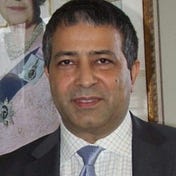Joseph Naghdi

Joseph Naghdi
Forensic computer scientist and senior computer forensics analyst working with Computer Forensics Lab in London, United Kingdom.

Forensic computer scientist and senior computer forensics analyst working with Computer Forensics Lab in London, United Kingdom.